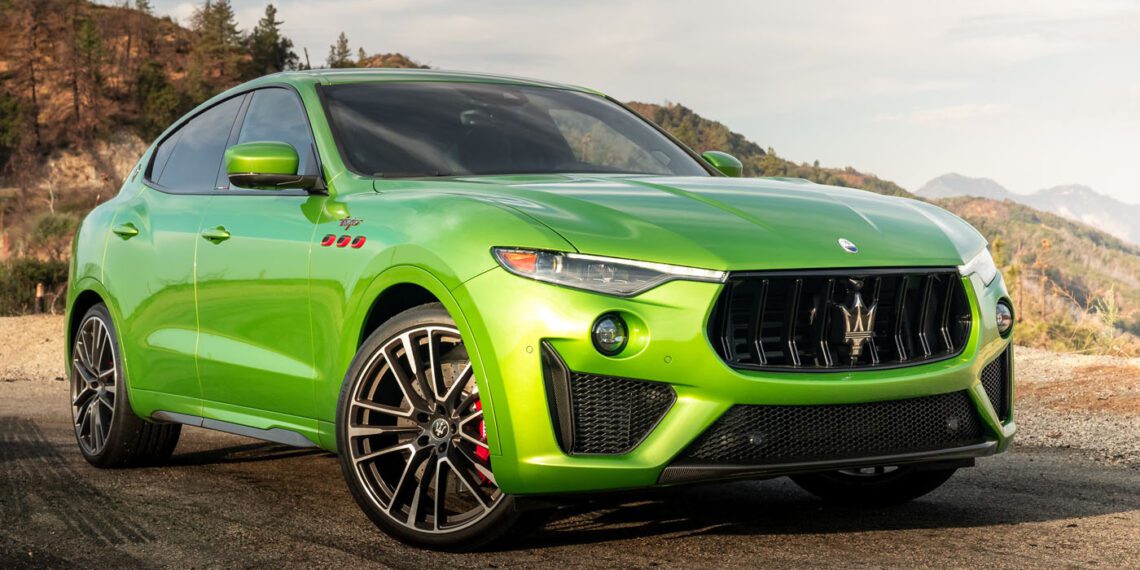
2022 Maserati Levante Trofeo Review: Sidestep The Norm
The Maserati Levante is a prime example of introducing the right product at the right time. Before its arrival for the 2017 model year, the Italian carmaker had just three vehicles on sale, the beautiful but aged GranTurismo, the flagship Quattroporte, and the “entry-level” Ghibli. The latter’s arrival significantly boosted stagnant sales figures, which the high-riding Levante only helped along.
Maserati introduced its first-ever SUV right as the market was ready for one. But despite wearing a sizable trident on its front grille, the Levante was neither sporty nor exotic. Initially counting on just a twin-turbocharged V6 engine, this family hauler made respectable power but nothing that would ultimately challenge its German rivals.
Flash forward to the 2021 model year, and Maserati aimed to finally give the Levante the street cred it deserves by introducing the long-awaited Trofeo model. Powered by a Ferrari-derived 3.8-liter twin-turbocharged V8, it made 580 hp, blasted to 60 mph in four seconds, and offered a properly sinister aesthetic. I recently spent a week with the latest 2022 version of the Trofeo, and not only is it quick, stunning, and somewhat flawed, but above all else, it’s unique.
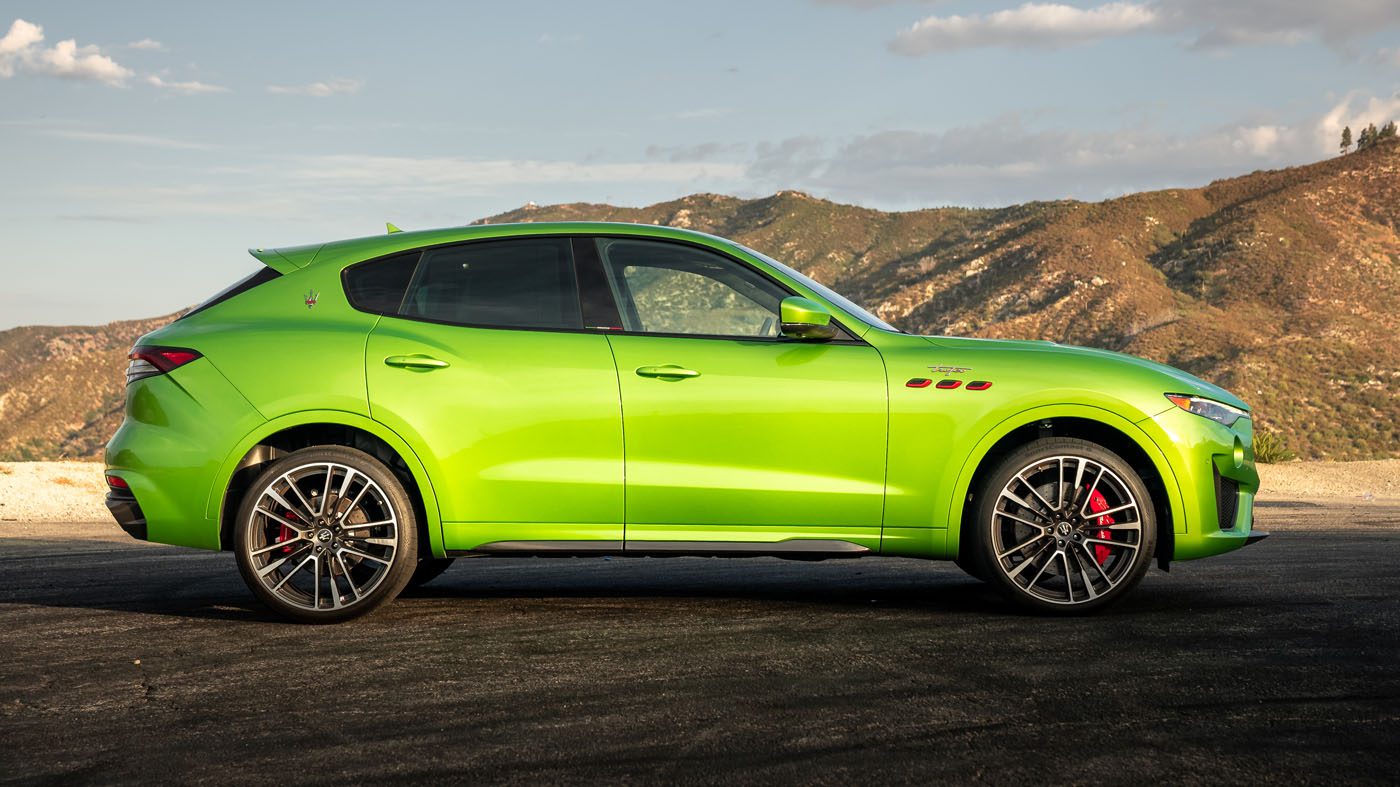
To say there is an abundance of available sporty SUVs would be an understatement. Six-figure buyers have more choices than ever. From your standard BMW M and AMG models to newer competitors such as the Aston Martin DBX and Lamborghini Urus. The Levante, however, slots in a sweet spot among them. Priced cheaper than the flamboyant Lamborghini or Aston Martin and more in line with the Germans, this Italian SUV is one of few offerings at its price point that won’t make onlookers assume you wear a gray suit to work.
This is mainly because the Levante looks genuinely unique. Despite offering comparable power and performance figures to a BMW X5 M, the Levante is shorter, lower, and slightly narrower. While these critical inches translate to a somewhat smaller cabin than its German competitors, the Maserati employed styling that, with the help of those svelt proportions, allowed it to hide its size well. The Levante doesn’t, at first glance, come across as a lumbering family hauler. Instead, it looks well-sculpted and interesting from just about any angle.
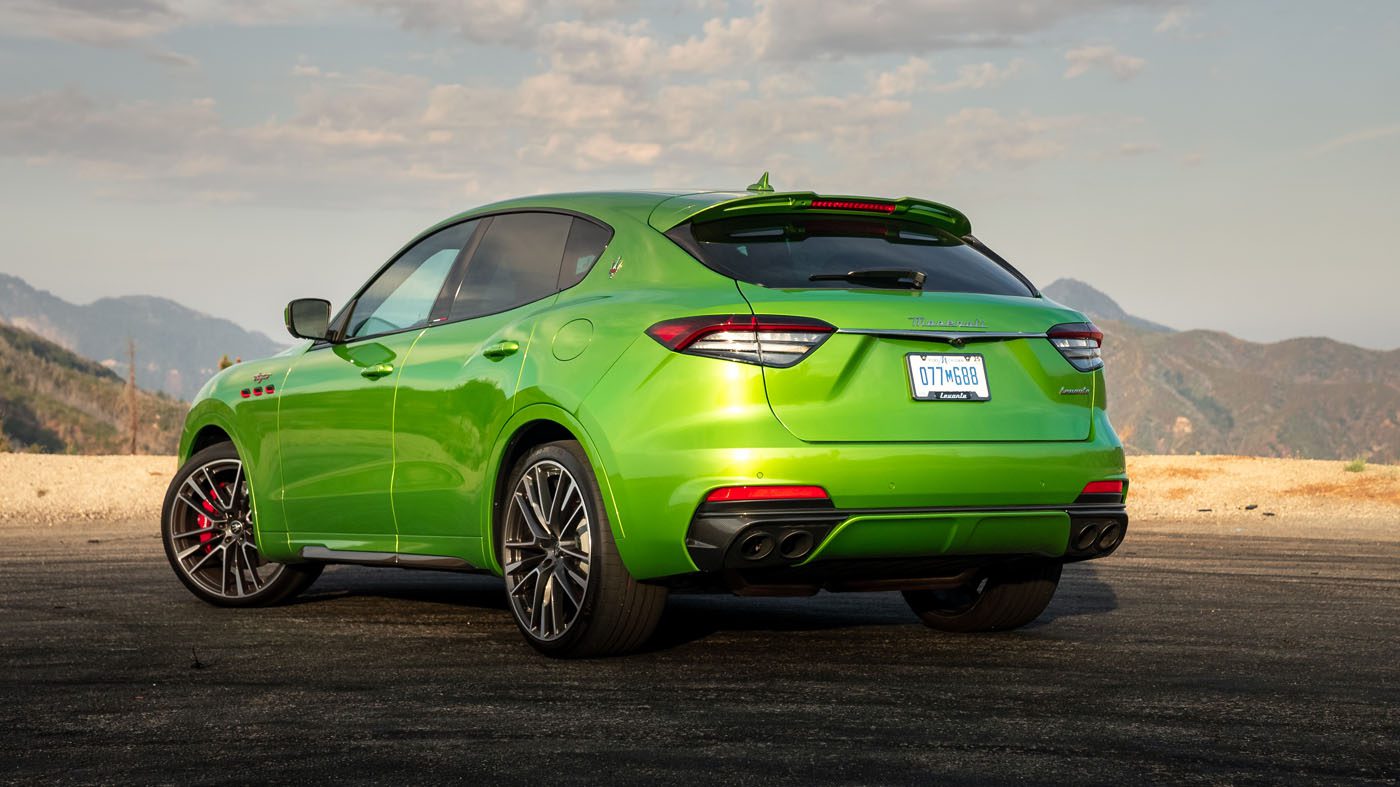
While the arrival of the Trofeo variant for the 2021 model year is a welcomed sight, it arrived five model years after the model was initially introduced. And according to Maserati, a replacement is already slotted to arrive between 2024 and 2025. Thus the buying public had to wait patiently to get the version of the Levante that is most like a proper Maserati, yet it won’t be around for very long.
The Best Luxury and Exotic Cars We Reviewed in 2022
If it sounds like I’m being a bit harsh on Maserati, it’s only because the Levante Trofeo is a genuinely enjoyable SUV. With that aforementioned prancing-horse V8 under its hood, it conjures up a seismic 580 hp at 6,750 rpm and 538 lb-ft of torque at 2,500 rpm. Although its exhaust note is surprisingly restrained, its acceleration is not. With all-wheel drive and a quick-shifting eight-speed ZF transmission, it feels as quick as its stats suggest.
This is in contrast to the Ghibli Trofeo I tested earlier this year, which felt much slower than its SUV sibling despite sharing the same hardware. If you want the quickest Trofeo, you’ll want the Levante, as it bests both the Ghibli and Quattroporte Trofeo in a straight line and with real-world performance. It feels the most alive of the three and eager to perform.
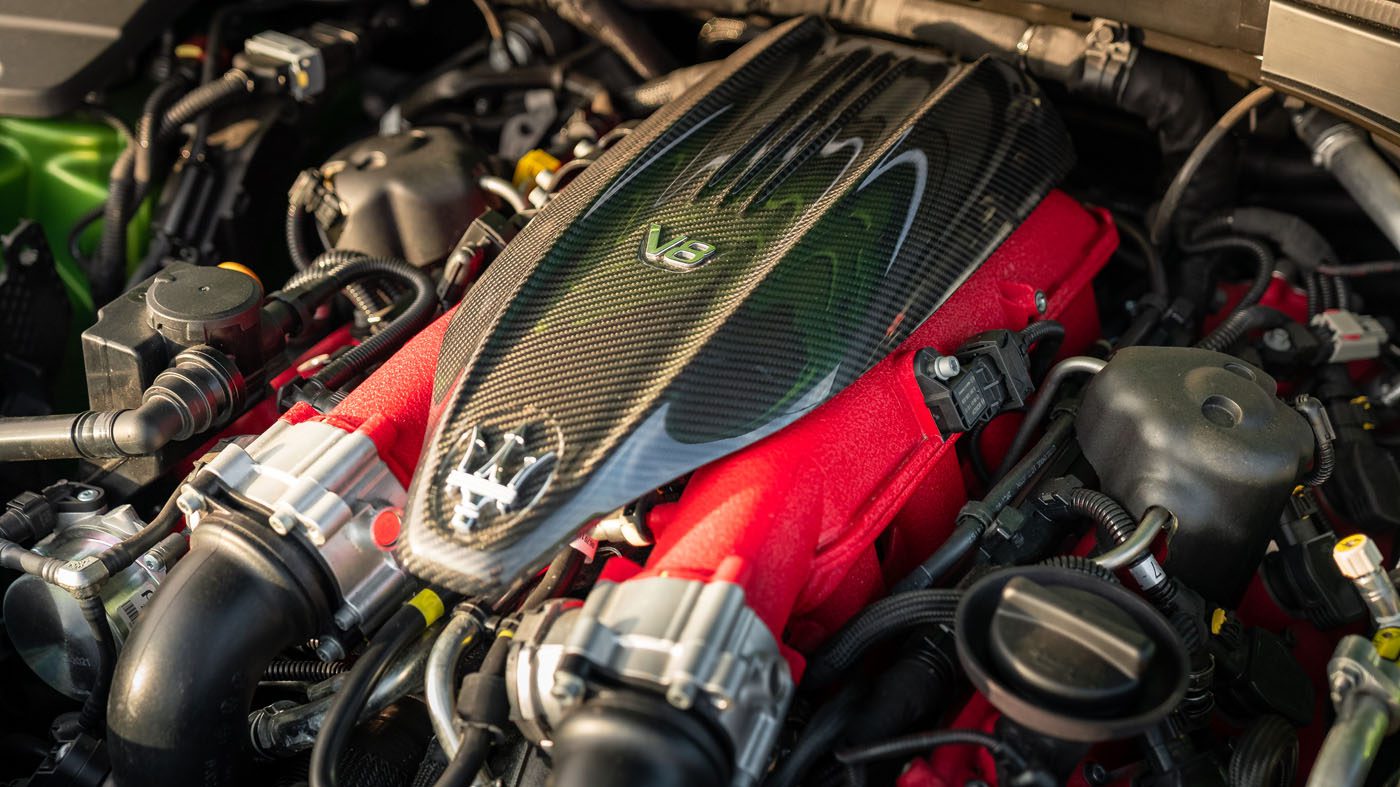
Tackle a corner, and the Levante Trofeo reveals its strange suspension calibration. It counts on an air ride system like its competitors but leans considerably and doesn’t inspire confidence in the bends while remaining quite stiff around town. It’s neither a comfortable high-rider nor a corner-carving athlete. It falls somewhere in the middle.
Since the Levante counts on a separate switch for its suspension firmness, flipping through its Normal, Sport, and Corsa drive modes will mainly tweak items such as engine noise, steering weight, and throttle response. Corsa is surprisingly usable on the street. Sure, the engine is a bit eager to go off leash, but it’s the only mode where the Levante’s response feels immediate, providing a stark reminder of the 580 hp V8 in front.
The Levante Trofeo’s steering is slightly over-boosted and lacks any real feedback. It’s surprisingly light in Normal mode but loads up artificially in Sport and Corsa. The brakes, on the other hand, are strong. Despite not being pricey carbon-ceramic ones, they have more than enough power to keep the Trofeo in check with short pedal travel and ample feedback. They’re also more than up to taking a beating up a windy canyon road.
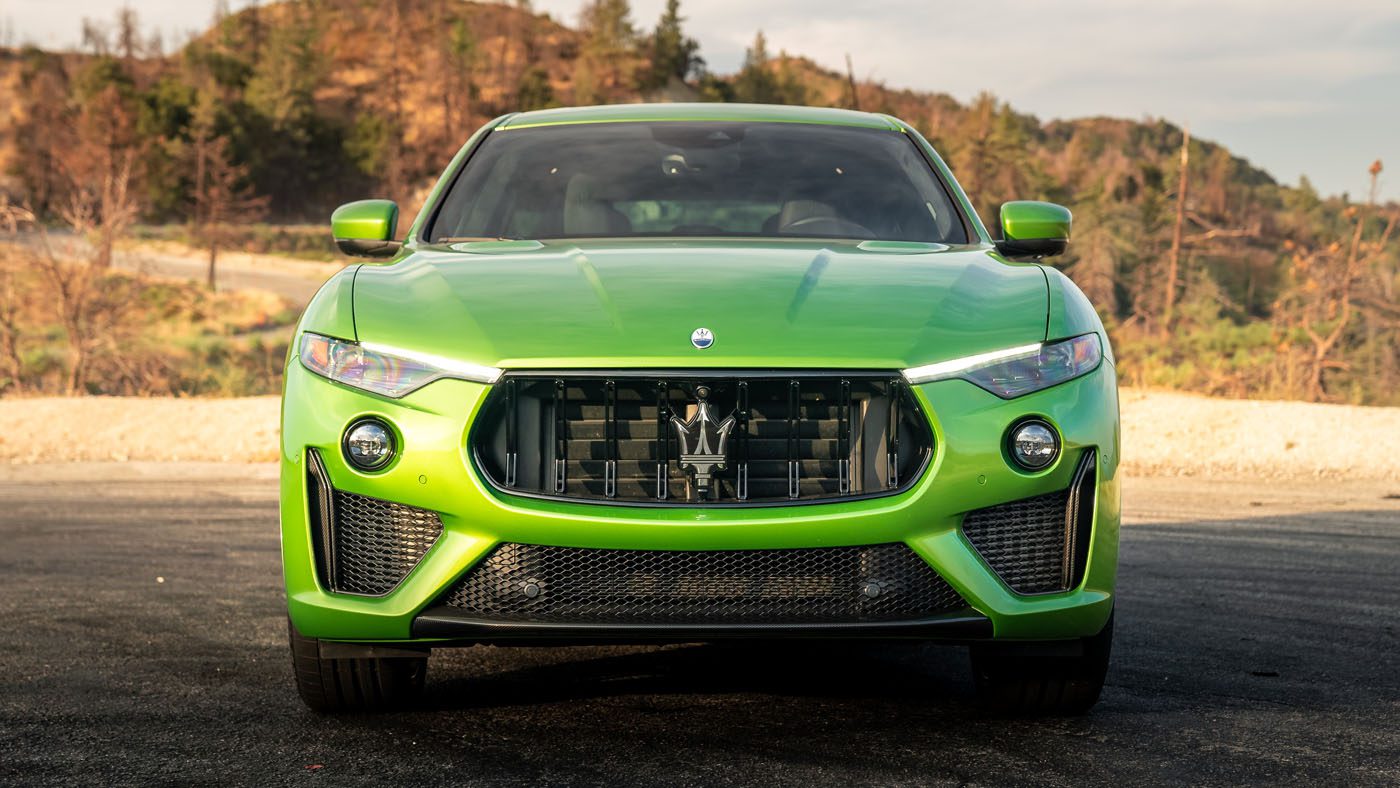
From a driving perspective, the Levante Trofeo is pretty much all about the engine that powers it. It’s not quite as athletic or agile as its German competitors, but with that comical twin-turbo V8 under its hood, it oozes personality.
The Levante’s flare continues with its interior layout and material choices. Its front seats are sporty but elegant, each with contrasting red stitching, headrest embroidery, and a horizontal center pattern. This is a departure from the Ghibli and Quattroporte’s woven leather texture and a welcomed addition. Aside from their look, the chairs themselves are plenty comfortable, and while offering all the bolstering you’d ever want, they don’t trade comfort for all-out sportiness.
2022 Maserati Quattroporte Trofeo Review: Good Looks And Old School Flare
The leather and stitchwork continue onto its door panels, center console, and dashboard, giving the Trofeo a distinct and modern look. However, there are subtle reminders of shared switchgear within the Stellantis corporate umbrella, such as the window switches, steering wheel buttons, and HVAC controls. They work fine but are meant to live in vehicles costing significantly less than this SUV’s over $150,000 MSRP.
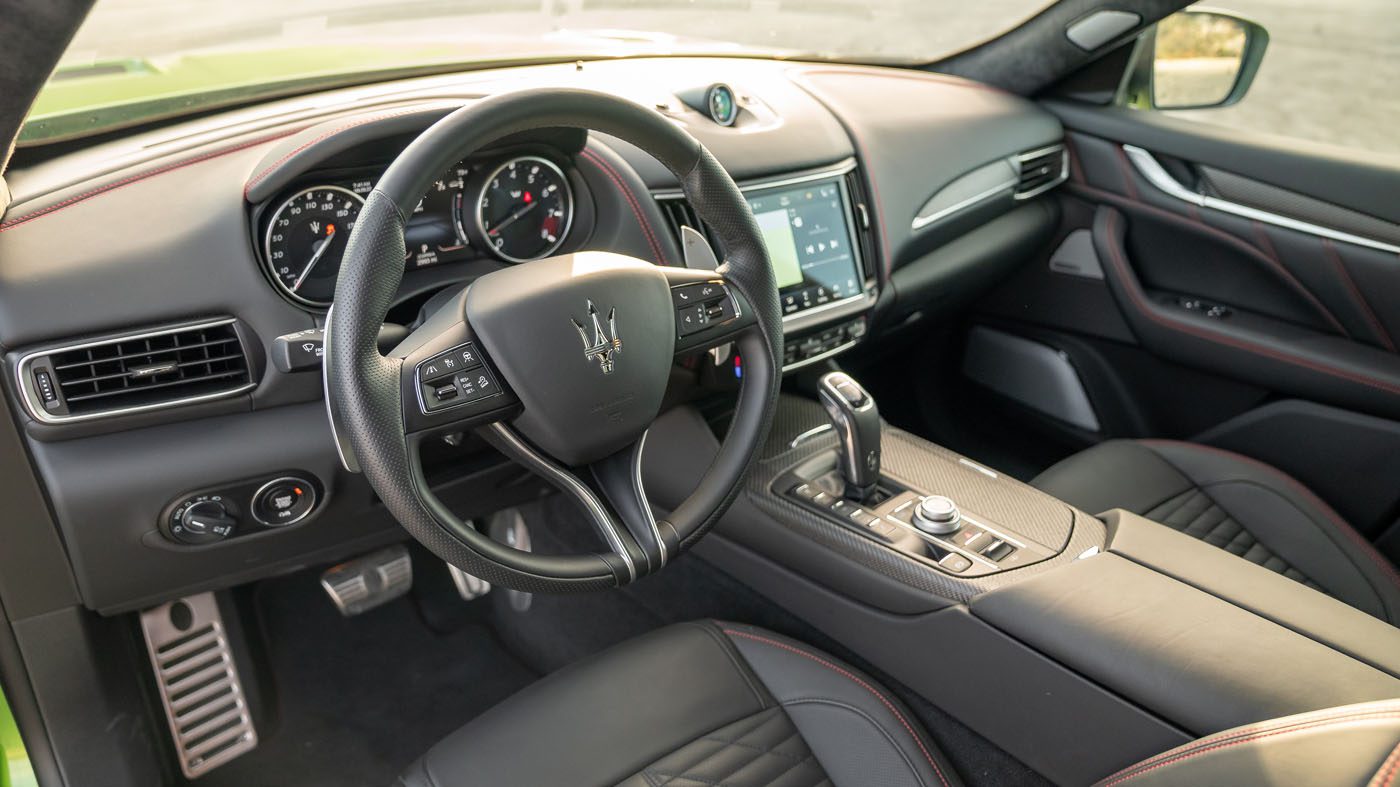
The 8.4-inch infotainment screen in its dashboard is also a carryover but is implemented in a sleeker, less noticeable way. It has your expected Apple CarPlay and Android Auto smartphone connectivity but builds with straightforward menus, elegant graphics, and a high-resolution display.
The Levante’s cabin is refined, quickly drowning out road and wind noise, despite wearing large wheels and somewhat sticky tires. As a commuter, the Trofeo is happy to hum along quietly in the fast lane. In fact, I’d argue this is where it is most at home.
Although I alluded to it earlier, the elephant in the room is the Levante Trofeo’s price tag. A prancing-horse V8 doesn’t come cheap. My 2022 model tester starts at $153,100 but can easily surpass $175,000 with optional extras. For context, the aforementioned BMW X5 M Competition starts at $115,095 and tops out nearly where the Levante starts. That is while offering comparable or better performance.
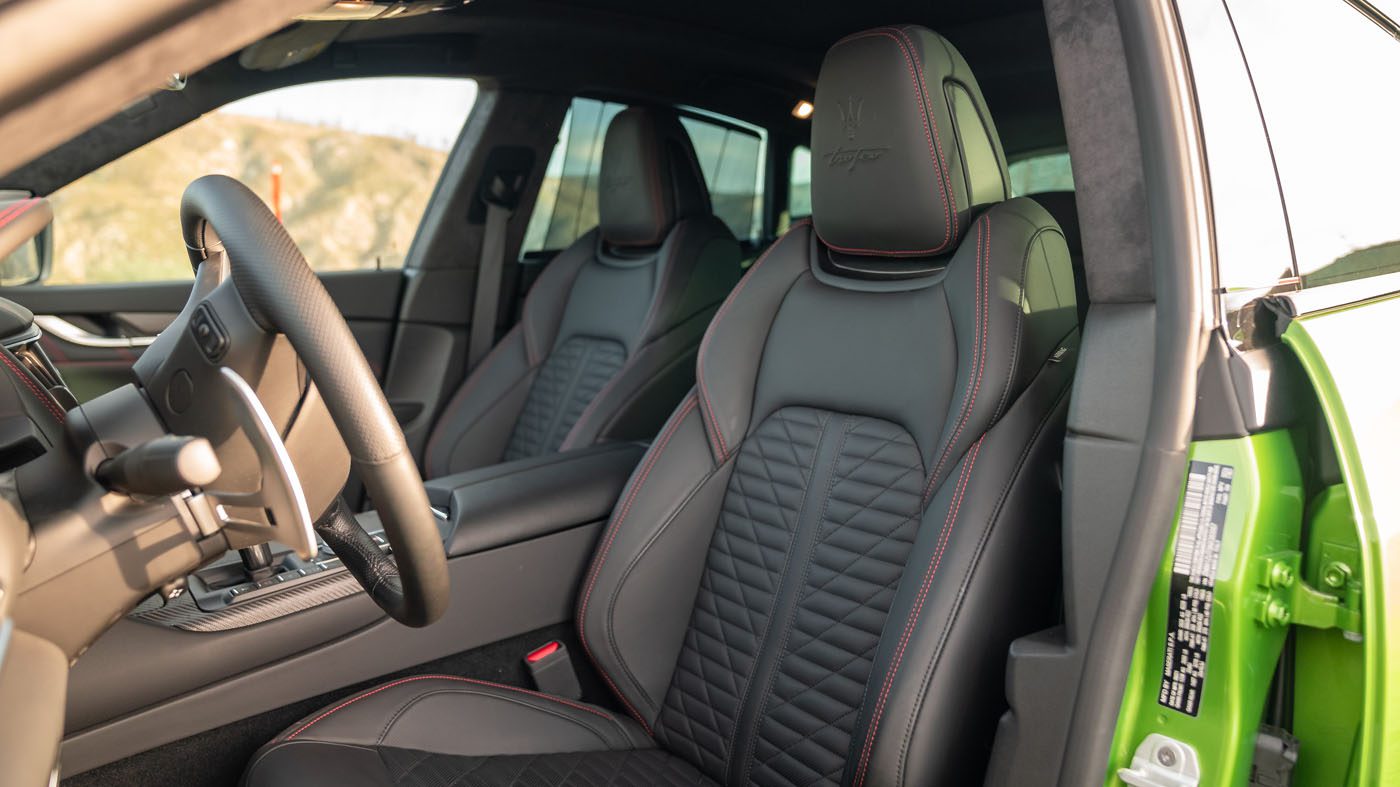
The Levante is quick, beautiful, and a joy to commute in. Its appeal doesn’t rest on its performance stats alone. In cities like Los Angeles, six-figure BMW M, AMG, or Audi RS products are as common as Corollas. Thus the Levante stands out as a unique offering. No one buys a Levante for track times. They want the look, the sound, and the prancing horse V8.
While the Levante can be genuinely enjoyable, it’s not without its flaws. Shared switchgear, a confused suspension setup, and a steep price tag make it more of a niche product. Still, as its competitors try to one-up each other with ever more serious personas, the Trofeo is a reminder that there’s a place for glitz and all-out fun, a persona that’ll hopefully blossom further when its replacement arrives shortly.









